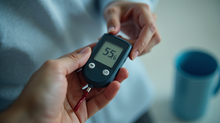Unveiling the Mysteries of Mast Cell Activation Syndrome in Modern Medicine
- Maureen Sullivan
- Jul 14, 2025
- 3 min read

Mast Cell Activation Syndrome (MCAS) is becoming a significant focus in healthcare, yet many remain unaware of its real impact on health and daily life. This complicated condition, marked by the improper activation of mast cells, results in a range of symptoms that can easily resemble those of other disorders. For patients and healthcare providers, comprehending MCAS, its triggers, and treatment options is vital for effective management and improvement in quality of life.
What are Mast Cells and Their Role in the Body?
Mast cells are a type of white blood cell that play a crucial role in our immune system. They reside in tissues throughout the body, especially in areas subject to injury, such as the skin, lungs, and digestive tract. Mast cells release substances like histamines and cytokines when the body encounters allergens or pathogens.
These cells are designed to protect us from threats. However, when they activate inappropriately, they can lead to a variety of health issues. Understanding this balance is at the core of awareness around Mast Cell Activation Syndrome.
Understanding Mast Cell Activation Syndrome (MCAS)
Mast Cell Activation Syndrome involves recurrent symptoms due to the inappropriate activation and degranulation of mast cells. Symptoms can affect multiple organ systems, including:
Skin: Symptoms like rashes, hives, or flushing, which affect approximately 70% of patients with MCAS.
Gastrointestinal: Issues such as nausea, vomiting, diarrhea, or abdominal pain, reported by nearly 60% of individuals.
Respiratory: Symptoms including wheezing, shortness of breath, or nasal congestion, affecting 50% of those diagnosed.
Cardiovascular: Manifestations like rapid heart rate, fainting, or low blood pressure affect about 40% of MCAS patients.
Diagnosing MCAS can be particularly challenging, as symptoms can differ widely from person to person.
Causes and Triggers of MCAS
Understanding the causes and triggers that lead to mast cell activation is paramount for managing MCAS effectively. Several factors contribute to this condition:
Allergens: Common triggers include pollen, dust mites, and specific foods like peanuts or shellfish.
Infections: Both viral and bacterial infections can cause mast cells to react, leading to symptoms.
Physical stimuli: Stress, intense exercise, extreme temperatures, and even certain medications can provoke mast cell activity.
By identifying and avoiding these triggers, individuals can lessen symptom flare-ups.
Diagnosis of MCAS
The process of diagnosing Mast Cell Activation Syndrome is often complex due to its overlapping symptoms with other conditions. Healthcare providers typically rely on:
Patient history: A detailed account of symptoms helps to highlight patterns.
Symptom tracking: Keeping a diary of symptoms can uncover connections to potential triggers.
Laboratory tests: Common tests include:
- Measurement of serum tryptase levels, which often rise during mast cell degranulation.
- Evaluating 24-hour urine samples for mast cell mediators, such as histamine or prostaglandins.
- Skin tests for specific allergens.
A collaborative approach involving allergy and immunology specialists often leads to a more accurate diagnosis.
Management and Treatment Options
Managing Mast Cell Activation Syndrome requires a combination of lifestyle adjustments and medical treatments. Here are some effective strategies:
1. Avoidance of Triggers
Recognizing and avoiding known triggers is critical. Keeping a symptom diary can help identify exposures that make symptoms worse.
2. Medications
Several medications can alleviate symptoms, including:
Antihistamines: Non-sedating options can reduce itching and hives. Studies show they are effective in 60-70% of patients.
Mast cell stabilizers: Cromolyn sodium and other stabilizers can prevent mast cell degranulation, proving beneficial for long-term management.
Corticosteroids: For severe cases, these may be prescribed to combat inflammation.
Working closely with a healthcare provider ensures the right medication strategy is in place.
3. Dietary Changes
People with MCAS might find relief through an elimination diet to uncover food triggers. Incorporating anti-inflammatory foods, like fatty fish, leafy greens, and nuts, has shown positive effects on reducing inflammation and managing symptoms.
Living with MCAS
Navigating life with Mast Cell Activation Syndrome can be difficult, but many individuals discover effective strategies to manage symptoms. Support groups and educational resources offer valuable insights and community assistance.
Maintaining open lines of communication with healthcare providers is essential. They can modify treatment plans based on symptom changes or new triggers that arise.
Final Thoughts
Mast Cell Activation Syndrome is a multifaceted condition that demands an integrated approach to diagnosis and management. A deeper understanding of mast cells, their triggers, and effective treatment options empowers patients to lead fulfilling lives despite this challenge.
As research progresses in this field, increasing awareness about MCAS will enhance outcomes for those affected. Acknowledging the complexities of this syndrome can pave the way for more accurate diagnoses and improved care for individuals living with Mast Cell Activation Syndrome.
In summary, MCAS presents unique challenges that require collaboration between patients and healthcare providers. The path towards understanding and managing this condition is ongoing, but the potential for improved health and quality of life remains an attainable goal for those affected.



































Comments